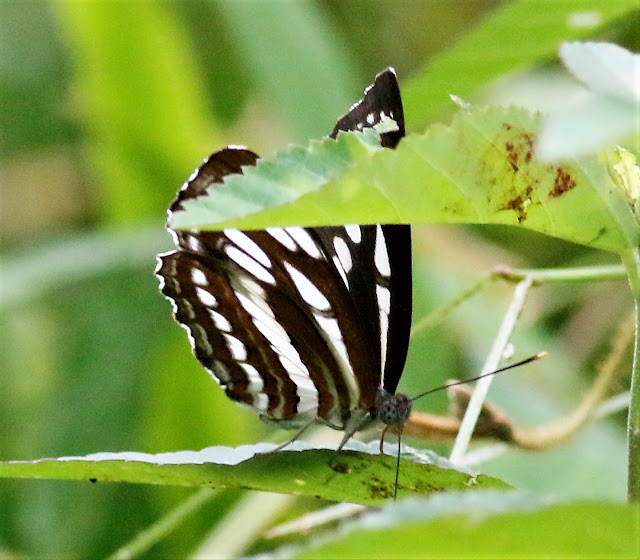In the tropical rainforest, you will feel just like a child in a toy shop. There are so many things to explore and see within a day. Like birds and animals, there are also butterflies which are common as well as rare ones.
 |
| Bamboo Tree-Brown (Lethe europa) |
 |
| Palm King (Amathusia phidippus) |
 |
| Tufted Jungle King (Thauria aliris) |
The above photo was taken without a diffuser flash.
This one was taken with some flash.
 |
| Blue-banded Jungle Glory (Thaumantis odana) |
All the above butterflies were very skittish except for the Palm King. Their comfort zone was very wide which prevented me from going closer.
Here are the more common ones.
 |
| Common Palmfly (Elymnias hypermnestra) |
The single white costal hindwing spot should give away its identity.
Edited: The above butterfly is actually a Dark Evening Brown (Melanitis phedima abdullae).
 |
| Great Egg-fly (ssp H. b. jacintha) |
 |
| Malayan Owl (Neorina lowii) |
The above photos show a female Archduke (Lexias pardalis)
Features: i) orange-tipped antennae
ii) larger size
For comparison, the photo below shows a "Yellow Archduke"
 |
| Yellow Archduke (Lexias canescens) |
 |
| Common Bluebottle (Graphium sarpedon) |
Darts can be difficult to distinguish so i will leave them to the experts. I can only guess that the above skipper might probably be a "Pale Palm Dart" (Telicota colon)
Enjoy the Natural World
and
HAPPY WATCHING BUTTERFLIES !










































